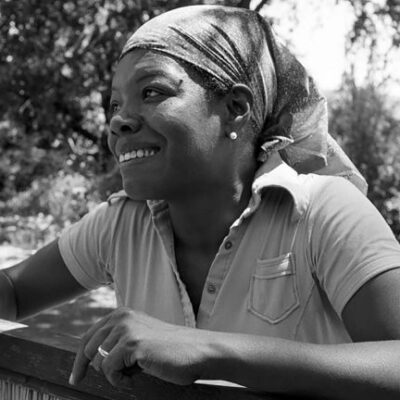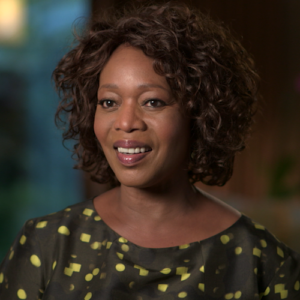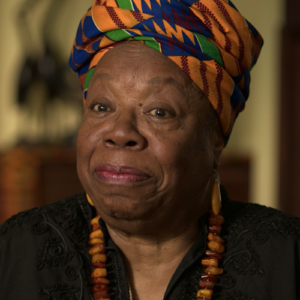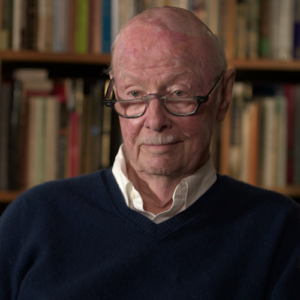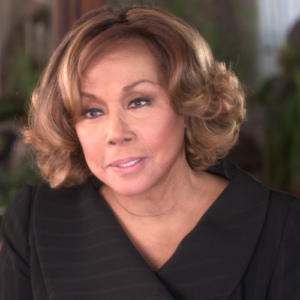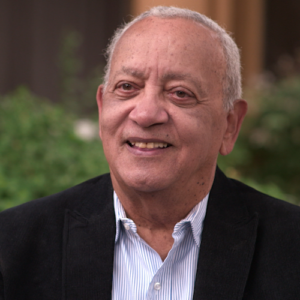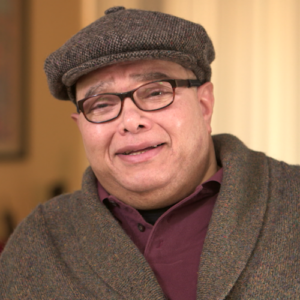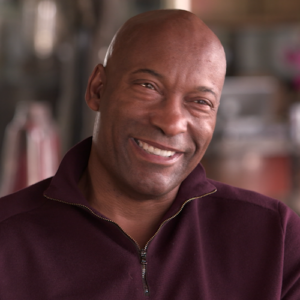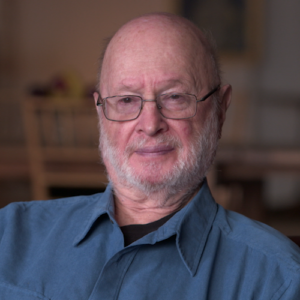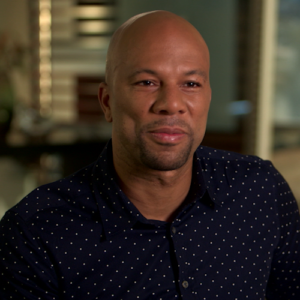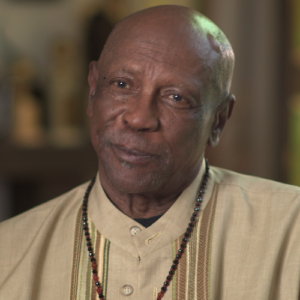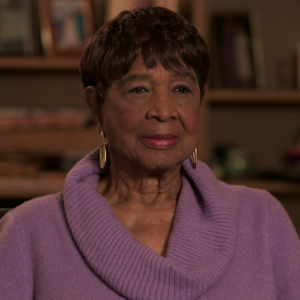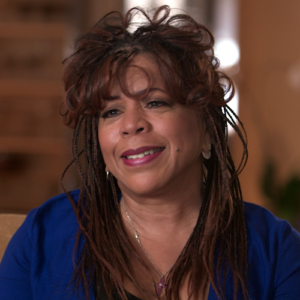Interviewer: I just wanted to start just by asking you a kind of a general question. How did you first discover music? Because you told me a little bit earlier, but I’d like to hear it on tape. How did you get into music? What was the spark?
Quincy Jones: Well, for ten years, living in Chicago, seen dead bodies every day and Tommy. Guns and stogies and piles of money behind, lights on them and all this stuff, You know, because my daddy was was a carpenter for the Jones was most notorious for Blue Jays America but that time. That’s all I ever saw. That’s all I ever knew. You know, any kids going to what they see happening, That’s what they want to be. And also, for ten years. Ten years that happened to my daddy. After Capone ran, the Jones was out of town in Chicago to Mexico. He put us on the trail with us the next and took us by bus to to Birmingham, Washington. During the war, the shipyards. You know, we went to North Wales and we broke into this armory one night. Where was our recreation center? And. Lemon meringue pie and ice cream. So we knew everything was going on. We had almost always covered everything with baby gangsters and all we really did. We learned enough from Chicago guys to really put it to use. And so afterwards, we individually broke into a lot of rooms in the in the armory supervisors rooms. And I went in and wanted to have the piano over in the dark there. And the person closed the door and stuff to sit set the back in that room. I had no idea I was affecting my life then. And I went back in that room and I went over to that piano. And when I touched it because I’ve heard music all my life, but I didn’t know human beings played it at all. Chicago, St Louis, Louisville. That’s all the best music in the world. And when I touched it, I felt every cell in my body said, This is what you do the rest of your life. And the next day, when I went to school with the Robin Koch Junior High School over there from Birmingham, and. I started singing after school plays, sousaphone, tuba, B-flat baritone or you flat alto move French horn. I played trombone because of the trombone in the marching band. Got to be with the majorettes trumpet in the back, so I had to be practical and postpone the trumpet. And also I would be with the girls because we used to kill the athletes, You know, by the time they got out and stuff, we had all the girls. And then I got the trumpet, you know, and Lionel Hampton tried to get me to go, basically kind of adopted me at 13. Clark Terry taught me trumpet, right. And. Lionel Hampton tried to get me to go in this band at 15, and I was so happy I got on the bus 6 hours before they left. I don’t want to tell anybody. What about the change of mind? And we get on and everybody gets on and everything else. I’m trying to hide like a deer in the headlights there. And now there’s houses that have gates go. Have gates. What’s what’s a child doing back coming on up to. Oh, God. How old are you? What’s your name? And I told her and she said, I don’t go back to school. So we’ll talk to you later. I was so hurt, man. And son of 18, I went to got a scholarship to Berkeley, Berklee. Boston was soon as well. Soon. And they called me at 18 and I worked with him for three years, is the best time of my life. And then we went to Europe for the first time on a prop plane for Tony for summer, and it just turned my life upside down. It really did. You know, I knew then that that with a piano, that’s what I’d do the rest of my life. It’s amazing how that happens. Total accident. But they say coincidence is God’s way of remaining anonymous, which is very true, you know? And so I’m glad I got touched, you know, because it changed my life. And it’s I can drive a car, but I know music now. I know my thing.
Interviewer: I want to ask you a little bit about how you first heard about how did you first hear about Maya Angelou? What was your first? If you can go back in time.
Quincy Jones: Well, it wasn’t about hearing about anybody back then. Nobody ever heard of. Oh, but I was doing a score on a I don’t remember how we first met. You know, I was doing a score on the love of R&B, and we had B.B. King for two songs and I needed a lyricist. And so evidently we knew each other because I saw her in New York and Total as who would she be interested in doing a lyric for B.B. King for this movie with Sidney Poitier and Abbey Lincoln? And she said, Sure. And she wrote one was a hit with the the Bobby Jones and something else was a big hit. And she was a beautiful 30 year old dancer and a lyricist. And she was always very God, first of all, to a man through 69, you know, always still like that more than ever. But the most beautiful friendship you could ever dream of, you know, because that’s a fantastic woman. Then I produced the. The inauguration for Clinton, whose first one we did, the first one we did it Lincoln, Lincoln Memorial. And we had man, we had everybody, James Earl Jones and Mickelson, Oprah, everybody, all they all the real world people. And. Doing that. I think after we finish, hospitals have a meeting with Mandela and he was there too. And we went over to hear her do the speech. For Clinton, that famous speech she did, legendary speech, you know, so incredible. But since he’s been like the sister, since I’ve stayed at home down in North Carolina, and we just it’s just we always say it’s time to have some learns, learns. And you are in c h because one time I called up and her assistant says, Well, I’m sorry, you can’t speak to Miss Angelou right now. She’s having her lunch. So maybe it’s time for us to have some more learns. So you tell that to who knows exactly who said that.
Interviewer: I heard her say that she.
Quincy Jones: Learned.
Interviewer: She till I think she described she wrote the introduction or one of the introductions in your book. She talks I think she talks about how you met, that you were she and you happened to be at UCLA doing some kind of a seminar or something. Maybe this takes your memory back a little bit that you and her were paired together somehow doing some kind of seminar at UCLA right nearby here. And when you got her to do the lyrics for those two songs, how did that how did that play out? I mean, what was what were you thinking about in terms of she was a poet, so.
Quincy Jones: She but I knew she could write lyrics. And of course, for blues you, it was really earthy, earthy lyrics, you know, and stir up ideas. That’s outside of being orchestral and composer, which I went all the way with that, you know, to not be able to say all the way, Stravinsky’s mentor, you know, and I’m proud of that. I can see stuff in people before they even know it. Even Oprah, you know, I saw her before she even though she got 35,000 ounces, sometimes 3 billion will smooth. James Ingram, Marvin Hamlisch, just all of them on and on, you know, brothers Johnson.
Interviewer: What did you see in my in those days that.
Quincy Jones: You are just amazing future and perhaps if just only using one maybe 10% of what 360 degrees because you could smell I could feel it, you know, I don’t know what it is. I could feel it. I don’t know what it is. You know, maybe because I have a sense of synesthesia. That’s a lot to do with those colors associated colors with would sound. You know I always think of chuckles gets to. Water comes to oil. You know, we think of music, you know, as a ridiculous analogy, but it works.
Interviewer: It must have worked. You know, I think we’re we’re seeing the evidence of it. Do you remember when her book came out? I Know Why the Caged Bird Sings. Do you remember reading that? What was your thought about that?
Quincy Jones: Well, it didn’t surprise me at all. It didn’t surprise me. I knew that was in her.
Interviewer: And if you start over, can you reference the book?
Quincy Jones: Oh, right, right, right.
Interviewer: I won’t be in.
Quincy Jones: This when I. When I first came in touch with the what the world claims were its things. It didn’t shock me because I saw that in her. You know, I mean, you can feel this a lot of things in her. They haven’t come out yet. And that’s what I really enjoy seeing that happen, you know? Really does. To see her just express herself more and more in so many different ways, you know? And it’s been a long time, you know, since she was 30. Me, too. And it’s it’s just incredible to see. Because they never let you down, you know?
Interviewer: Do you feel like there is a part of you in that book in the sense that you also experienced extreme racism, you experienced challenges, you came up from, you know, nowhere, you know, like she did. I mean, she was in Stamps, Arkansas. You came out of Chicago in a very violent situation. You theoretically, neither one of you would have had a chance.
Quincy Jones: The Depression.
Interviewer: Yeah, exactly. Yeah. I wonder if you if you talk to me about this, if you feel like there’s part of you in her story that you kind of came up through some challenging times, you you endured racism. You told me earlier tonight that when you started composing, it was difficult for you, just as it was for her.
Quincy Jones: On Beyond Difficult. When I started Universal dating my black people in the kitchen and it was amazing. I just did an interview with Jenny about Gentlemen, Cynthia and Hank was one of my mentors, was first by the scoring, and I had a really kind of big brother protect me, you know, because I went in for the first my second movie of The Pawnbroker, and I sort of finally got through after all these years, you know, And I thought, it’s going to come rolling in. No way. A year later, my agent was a person of his son, Peter Faith. He wouldn’t let me take the movies. Thank God. So all of the movies we dealt with were real strong in movies, you know, and. The first time I went out, you know, the guy was shocked that I was black and he couldn’t believe it. So he went back and I said, You didn’t tell me he was a Negro. And Joe Gustafson was there. Some men go up, you know, and they called Henry Matheny. He said managers got to study with Noteboom last year, the Stravinsky’s mentor. You know, I’m not going to read blues guitar for Gregor, but I became close to Greg the lady, so that wouldn’t have been a bad idea. But it was good for me. He was a great, great guy. Okay, Grant’s last movie we did walked around and it was this Golda’s. First she got an Oscar on a cactus flower. It was just amazing process, you know? And it’s, I don’t know, getting hitting the age my age now, 80. It’s just things you think about that you never thought about before, but you couldn’t plan as to certainly if you tried. You know, I’m sure Maya feels the same way. You couldn’t plan it, so you just let go and live God, you know, because so much happens, which you have no control over. It’s ridiculous. We’re living in Paris for five years, you know.
Interviewer: Well, it does seem like there’s a parallel between your life and hers in some ways, in that that you went through all that. But also, it’s like you and she lived the life of 12 other people, the things you both.
Quincy Jones: That’s what it feels like.
Interviewer: If you could talk about that accomplishments in her, her diversity is amazing. Yeah.
Quincy Jones: That’s because that’s tricky. But I think. Of Maya’s diversity and her enormous power talents, plural, all come from probably studying her core skill. Oh, I’m really having that down pat because I know in music that’s left and right brain and it makes everything else easier to learn, you know? And so when you to those. You deal with emotional right brain, left brain and emotion and intellect, and God gives you a talent, you know, and you have to pay back God back the talent by putting work into your intellectual side, the core skill you have to study the science of it. You have to. And so it’s a lot of lessons you learn on the way about humility with creativity and. Grace would success because people, not people, don’t deal with it like that. They do like expectantly and only deserve it and all that kind of junk, which is not true. And it’s amazing, this amazing journey. And I’ll never have time to sit back and look at it and analyze it before. But when I hit 80, it made me think about a lot of things, you know, because it’s been so diversified, like, like mine is, you know, different way were like my is from having a. Oh. The first black company with television on television stations. I had a brother, Rivera, Don Cornelius and Willie Davis and Sonia Saltzman were amazing success. And they won. Made me sell it early because there was so much money, you know? Magazines started by magazines, just television companies and all. But that comes from putting the energy into your basic skill, which is orchestration, composing whatever, learning music, retrograde version, really knowing your skill, your core skill. That’s very important. And that’s all my kids, not my tough love, comes in an art department, you know, and humility and grace and lots of rushes is one of the most real people I’ve ever met. You know, even she was my daughter. She’s just a real person, you know? I said, you aren’t going to do all this professional stuff until you finish Harvard and Steve in the summer of 21. And it’s ironic, too, because at that time, when I was at a joint venture with Time Warner, we had two fires like taxicabs, where we want to go, you know, Sikorsky, helicopters, everything, you know, after you make them a lot of little money, you have to make a certain amount of money from them first before you get that, you know, and.
Interviewer: But I have you. Did you ever and all the time you spent with my. Had you talked about your the fact that you both came up through such a difficult time?
Quincy Jones: Well, we took that for granted. We took that for granted that we both paid the same kind of dues. But that’s when we came up that you couldn’t help but pay dues. You know, after leaving Chicago, where I hardly saw anything, but there was 55 million black people. And Harlem and Compton didn’t mean a thing to me. I was like Boystown after Chicago, because Chicago was a rough city. I know, But we took that for granted the body of our age. So, no, you didn’t talk about that. Because when I left Seattle that the most diversified high school on the planet with Jimi Hendrix and all everything my architect, no generals ski resort almost everything and you live that kind of things. And the fortress was like that. We didn’t think about race then and we kept Lionel Hampton bang a gun on South. And with the 301. I was a year and we had a band bus with a white driver so we could eat in the South, you know, And man, you couldn’t believe it. The white and colored fountains, the water fountains, hot white hotels. Forget about it. You know, we played the dances, move have chairs separate the floor from whites and blacks and some of that. Most of the cities had to 50 general admission dollars 55 spectators to sit and watch the black people dance in South Carolina North Carolina like that. But unbelievable. And we were in Texas one time and this will really and I really got the message. And we got off work at about 1:00, got in the bus hungry. Six cities were too scared of the white brothers, too scared to go in through the restaurants. We finally get by dawn. We get to Dallas and from the biggest church there, the steeple. There’s a rope and fancy of a black bomber hanging off the roof of the biggest church in town. So, you know, you’re not gonna stop there. Dallas. I mean, Dallas is a whole different thing now. A lot of friends on top of the man. It’s just outrageous. We used to sleep in and funeral problems with bodies in coffins. Jimmy Scott, who was my roommate then and sleep at the funeral parlors in. In of Baltimore. Unbelievable.
Interviewer: Wow. What a story that is. Yes.
Quincy Jones: When I was that was you know, you didn’t talk about it because it was everything. It’s not you know.
Interviewer: I wonder if you could talk a little bit about working with Dr. King, because Maya also, as you probably know, she worked for him almost two different periods of his life. And she at one point was hired to be the northern director of the SDLC up in New York. And then she left for a while, but then she came back later. But you worked with Dr. King, and so what are your memories of him? And I don’t know if you would ever talk to me about her experiences or you shared many, maybe a story.
Quincy Jones: No, we didn’t.
Interviewer: Okay.
Quincy Jones: We didn’t. We may have casually, you know, but we never and never because we all had so much going on, both of us, you know? But my first. Meeting with Dr. King. I was doing a afternoon benefit for Rachel Robinson, Jackie Robinson’s wife from Connecticut. I had a big band and just we put together with my favorite musicians, you know. I was starving to death by them. A flight by 1955. And I had learned before that almost every black activist activist movement was always preceded by the music changing. And Charlie Parker had just died at 34 years old. The Stanhope Hotel in the nick of Rothschild’s apartment at the age of 34. Marilyn Monroe and. That that fit what we were talking about, the concept about it being preceded by new music, because bebop was that was it. And that was I was a junky with bebop because it wasn’t about money or fame. It’s about being a great musician and being an artist, you know? And I used to see Charlie Parker leaning over the jukebox and Charlie’s Tavern while the musicians hung out, listening to Stravinsky and all that. And they didn’t want to have to dance or entertain anymore. They just wanted to be open to artists, you know. But they revolutionized the music, But it went over the heads of the public. I remember I took Charlie Parker one time to a concert that had had a King Curtis when rhythm and blues came in, you know, it was right after the big bands went away. Rhythm and blues came in, but the founders of Rock and Roll, to me, that word always bugs me. Rhythm and blues, really. And the the emotional revolution happened about 1954 when white, the young white Americans discovered what blacks listened to all the time, you know. And who’s talking? Curtis? With 3000 people clapping on, he couldn’t believe it. That could be that popular, you know. Anyway, being around was Hampton, me, Hampton and Lionel Hampton and Louis Jordan. They were the founders of Rock Roll. They started it all, man. Forget about, you know, Presley, Bill Haley and all this stuff. This was before news. They were doing that. Ray Charles and I went once when I was 14. He was 17. We’ve heard him do let the good times roll. Listen to Vocal lay. Right. And that was the first record I did with Ray Charles. Would love to get on a roll and. We’ve just seen all of these new genres just come in. Out everything. Mumbles Salsa, which was created by the Puerto Rican and Cubans, were was born in New York. I used to hang out with to the point it back then, you know, it was when those cutthroats, killers and all the little pimps smoke and more. It’s amazing. I mean, you get this age and you’ve seen so many transitions and all of music come and go forth to the floor was was base’s trademark. And here comes disco would fall to the floor. But the different stuff on top with Donna Summer and all those people, Gloria Gaynor, you know, so you get used to the diversified genres and everything else and. Coming from where we came from, we had to play everything back in the in the forties. Ray Charles So we play the Seattle tennis club, we play pop music, you know, because the kids were in the early fifties. The white kids will listen to how much is a dog in the window? Mule train. Yellow Rose of Texas. Then the sea walls and everything. That’s what pop music was then, you know. And then until that revolution came and the motion revolution happened in England, 64, I took Les would go over to the 18 hits River, which is 16 to go over and 62 with Trini Lopez on a tour and that’s what McCartney Mick Jagger and all those guys just talking about the. British Invasion, you know, and Mick was talking about he’s going to take a Muddy Waters song. Rose Pop, the Rolling Stone name is Group. After that, who copy Tina Turner And Mick is really Tina Turner. That’s just he’s got Tina Turner down, you know, different legs, you know, And we have Little Richard and they have really, really personal those guys playing with them. But so you’ve lived through the evolution of all these genres and it’s amazing. It’s like piece by piece. Is it put together in all the places like Sweden? You know, we recorded up there in 1953 and you see the ABBA, Barney, Benny and Bjorn and all those guys, Agnetha and then Ace of Base and then becomes more Australian and then another, not Mick Huntsman’s. It’s amazing in exceptional you start to see all of it, you know, and you get a good handle if you travel, you got to go. You know, we went to Iran when I was 18 and all that up with them and or Tehran. If we have a good American, put the song of Iran in office. They put Saddam Hussein in office, they put Mobutu in office, Noriega, communism. I mean, Marcos in the Philippines, you know, so the history I’ve always been a history freak, you know, all my life. It just always just got me. You know, what happened before because of you know, what happened. If you know you coming from that Caesar’s get where you going, you know. So I was always into languages and scripts of different countries and everything. But my as the same way this is the same exact same way. You know, she was a moment she was in Ghana.
Interviewer: She knows that she talked to you about that. She lived in Africa for, I think for about five years in Egypt. And I’m going to you about that. Yeah. Do you have any memories of her?
Quincy Jones: And now we’re not one of the details, but some of the you know, if you’ve traveled, you know, you’ve got to take that for granted, you know, because you’ve seen it, you know, But see so big move, you know, to move away from America to go to Ghana, it’s a big move. And I wish more people were doing it. 12% of Americans have passports. Only 6% use them and they don’t know about the thing about the rest of the world. They really know. We know in general here, we don’t know.
Interviewer: That’s amazing. I didn’t know. Yeah.
Quincy Jones: And 25% of Congress and all of the Senate, you know.
Interviewer: Why did you choose my to write the foreword to your the your book The Complete Quincy Jones. Why? Why her?
Quincy Jones: Who didn’t blink? Blink. We had. It was Maya. Oh, please.
Interviewer: For reference, your book used my kind of question.
Quincy Jones: All right, I forgot. Yeah, okay. Of she. She was perfect to be one of the people that were dealt with the forwards and the book. One of the books we put out, The complete Quincy Jones, which did not complete because there’s too much stuff to put in there, you know, And if that meant for my sister, a lot of form of pictures and report cards and all that stuff, you know, look, you know, of course I’m always going forward, you know, But Gloria and my brother used to take the.
Interviewer: Why did she why do you think why was she is such a good choice?
Quincy Jones: Mainly because she was a great choice, because it’s organic. It’s organic. You know, just the relationship was so diversified. You know, it grew into this diversity. You know, it started out with her as a songwriter or a lyric writer, you know, And you see, once you meet the human being, like, not able was just to tell me, Quincy, your music and never be more or less than you are as a human being. Very true. You know, it’s who you are as a person. It’s you have to take. Rhythm, harmony and melody. Only 12 notes for Brahms, Bach, Beethoven, Bird suit, Bo Diddley, all of them. 12 notes. That’s all we ever had. It’s amazing. It’s essentially the 13 notes. I want you to learn what everybody has done with those 12. And that’s was that was our mission when we were young. So that’s how you study and study scores of, you know, Rimsky-Korsakov and Ravel’s, Stravinsky and, you know, your idols, Alban Bird, you know, 12 notes for 12 know people. But the difference between the European influence is virtuosity and concert is life force music from Africa, and that’s you playing insects and birds and jungle sounds. All nature sounds are all part of it. That’s why it’s so powerful. And I remember I was 15 years old in Seattle at a rehearsal. I snuck in on a rehearsal at the Civic Center there with Toscanini and the Philharmonic, and Harry McCluskey was Wisconsin ambassador, and we worked a lot together. Later violinists. And Toscanini told me that he had just been to Brazil and he met Villalobos and he said, one day the African beat is going to crumble the hallowed halls of classical music. And it did not not crumbled, but it replaced it, you know, all over the world. And if you go, you know, that’s what’s up. Yeah. You can’t tell what city a young man Jimi’s and Monte Carlo have the round Central Park of Egypt, Cairo, Shanghai. You know, you can’t tell the difference. So what, though? In South Africa, the Mandela 48 years I worked with him. You know.
Interviewer: It’s well, speaking Mandela, as you may know, Maya wrote a book, recent book about Nelson Mandela. And I just wondering if she if you and she talked when he passed recently, if you shared some of your sorrow and grief when you heard of his passing with Maya because she was close to him as you were.
Quincy Jones: About, I didn’t know Mandela died. That’s one of the most painful things I’ve ever experienced because we were so close, you know, almost 40 some years. And everything you can imagine, like my observed with him, we went on the blue train with him, which is like the Orient Express, you know, first timers ever integrated, invited us there with the cricket player from from Pakistan and now me, me and Pharrell, normal stuff. And we got off in every city from Pretoria all the way down to Cape Town. And we went over. He asked me to come over and co-host one with him in an office, Provence and I decided to bring five gang bangers from different from South Central. And so it was called South Central to South Africa. And we had these girls and boys, Mexican and black over gangsters went over in ten days, turn them upside down, Mama. I took them to Adelaide. Tumbles of Oliver Tambo was a co-founder of ANC with Mandela and she had a 50 of a boys choir. It just was a big them. Took me out to the back with a lamb that was tied like that. But that’s an honor, you know, And this lamb of the look pull of and I was looking to be like that, me getting ready to you know, it’s it’s a little sacred ritual, you know, But I couldn’t help it. She said, come on, look, I said, I can’t look whose eyes he’s looking like, Get me out of this. And all up later with that, they put the blood in a pen. You have to go put two feet in that stuff. And it’s a ritual, you know, all ancient ritual. And so. My experience that that’s why we didn’t have to say too much with each other about it, because we knew what these customs were worldwide and the difference in this territory and Ghana. You know, give me a global North Africa. You know, the Berbers in Morocco have just we just recorded over there for the king. You know, it’s African and Arabic. The Berbers are Berbers, him everywhere and name in South Spain and Paisley Common the Malian with the with the of flamenco. They went up the other calls Germany every. Place in Moscow is Morris Architecture. MAN And there’s rumors about Bach. I mean, Beethoven and Handel, although half black, you know, because members of the man that was amazing what happened there. You know, I was in Turkey to Constantinople, which is Istanbul, really. And they were telling me about the Armenian thing back in the day and how he came over those hills with the elephants and all. But history has always fascinated me, you know, in my is exactly the same way is and in the history And we went over to the inauguration. Maya was with us and we went Air Force One with Hillary and Jesse Jackson and Colin Powell, everybody. Well, Charles Dinkins and. At the end of the show that they put on with the South Africans. So we can’t completeness of the night without our sister from America, the sons in law, which if I haven’t come to the States, I will sit with Colin Powell behind Arafat, Khadafi. Castro, meanwhile, was a trip man on a trip.
Interviewer: What do you remember?
Quincy Jones: And she got up on the stage and she did her number, which he sang and recited reports of, blew their minds. And I cried.
Interviewer: That was at a party. After all.
Quincy Jones: That was a big arena. I mean, a concert at all. And while they were celebrating Mandela’s inauguration, I was big stuff, man. Well, big stuff. And he came out. He was at enough grace to let that be the call president. You know, that’s takes a lot of lot of glamor. And I have the pens and they have the room of his cell, number five at Robin’s Island, all that stuff he gave me, you know.
Interviewer: We just want to go back to one more thing about the when Maya read her poem at the inauguration, what what was your memory of that? How how stirring was that to you? That she was like you? She came out of nowhere and she was theoretically, I mean, amazing that that a president would choose her to do this poem. What were you thinking then?
Quincy Jones: I when I went over that, because I felt like Dracula, the Senate produced that. So that’s the hardest that’s out Patriots. The Oscars is hard but boy that that’s our job and. Of. 500,000 people, ma’am. Jesus Christ. Unbelievable. Hundred piece orchestras and just a couple of guards and everything else. And in the last minute feels a duel. Just ad lib talk now because Clinton was late coming from under Jello, you know, And we have had to stall for a while. And then I got for Mike, there were no dialog and we were just making it up. And finally he and Gore, Hillary and Tipper came in and we said, well, the 500,000 people that are all ready for you and everything else. Then during this time, though, this lingered in my mind as they’re telling me you also got 118 airplanes coming. I mean, I never dealt with airplanes before. I can’t tell a waiter to clean it till we get ready. You know, the whole 118 planes. So anyway, I finally said, Mr. President, are you ready? Let’s hit it. You know, all that was on on the screen, and then we get the color guard down, get to Augusta. Started up, which was 100 pieces. I get the color guard down and get them down and they get the planes on because I was worried about those planes cause I couldn’t travel, stall them, you know, And it was just right. Man. I was so relieved. I can’t tell you. And then after all of this chaotic stuff, you know, and I’m supposed to meet with Mandela afterwards, too. But we went over to that other location and I said, I heard my sister on the stand now reading this. And I had those thoughts of such pride, like, you cannot believe I’ve not thought the same thing, how she got chosen to do that. And she was that ample, perfect choice for that perfect chance, man. She expressed the subtitle of that program.
Interviewer: And the pulse of the.
Quincy Jones: Morning on the Pulse memorial. Unbelievable. Unbelievable. I mean, I almost cried, you know, It was so powerful. And we were all standing out, you know, thousands of people standing up there. Just getting our souls washed with love. That’s great. And creativity. Beautiful creativity.
Interviewer: She came on the scene. 30 years old. How did she look? She was exotic. She was different.
Quincy Jones: She was a dancer. And in Brazil, that was hot. And Brazil, they kind of boomed out. Dunga, smooth Brazil, beautiful Brazilian. You know what? My. I had it all, and I said this was at the time I was thinking, this is ironic that I’m asking her to write lyrics and she’s a dancer, you know, and so forth. But I don’t know, somehow it all made sense. But Abby was a singer, you know, She was acting with Sidney on that. I think Carlo Carmen was on that. Looks at all of them. Yeah. Yeah.
Interviewer: So at that time, you all hung out together, and these names are easy for you, but for our public. Who was hanging out? Maya Abbey, Lincoln, Max Roach. What was that like? Were you all all together? Was it.
Quincy Jones: Lonely that. That was the one. Those were peeps the company would come up with. Those were people. It was so diversified. You can’t even believe it, you know?
Interviewer: Well, can you name some of them?
Quincy Jones: Believe it would put them that? Lena. Diahann Carroll of Babs Gonzalez, Dizzy Gillespie, Ray Brown, Charlie Parker. You know, all of them just it was a modern way of thinking. Jazz was a revolutionary way of thinking. You know, it is about freedom in all the Russia felt that way in Hungary felt that way. The Berlin Wall didn’t come down because of Kennedy. And Reagan came down because was from America and and communication. Trust me.
Interviewer: So when my came on the scene, the men loved her.
Quincy Jones: She wanted to do what’s not to love.
Interviewer: Okay. Can you say a little bit about Maya and B.B. King?
Quincy Jones: Well, I didn’t discover too late, and it was my confessor. To me, that is her and B.B.. After she did the songs, we had a song. We had a big hit song from that of. The relationship went past it, put it to put it properly. And I didn’t know that at the time. And so this was only about ten or 15 years ago we talked about. So I don’t know that many people told me that if I knew that, I would have told you to stay away because blues singers give the blues. They don’t get the blues, they give the blue. Oh, that’s who gave us the blues, too, because you gave her a rough time and she was so funny to see. I saw that in a concert a couple of weeks ago and he had on a three piece suit. And I said, Well, he looked like this. They looked like a corporation. So it seems funny, you know, she’s always funny, man. She’s got a great sense of humor.
Interviewer: She does have that sense.
Quincy Jones: That that street sense of humor. That’s me, too, you know?
Interviewer: Exactly.
Quincy Jones: Standing would you know.
Interviewer: All of you guys were together with Oscar Brown Junior, though? Hard to do it with Kicks and company.
Quincy Jones: I did the album with him Keeps on Coming.
Interviewer: Was Maya… Maya was in that group.
Quincy Jones: Was of Hazel’s Hips and I did that album.
Interviewer: Okay. So were you when you all used to all kick it around? Who was there? Maya Angelou. Oscar Brown, Junior.
Quincy Jones: Let me go back then there was hundreds of people on it from and you know, and the movie people hung out with the music, people with the comics and all that stuff. It was you. We couldn’t identify anybody was. So I used to work the chitlin circuit when I had my band with Billy Eckstine at the Apollo in New York, the Regal in Chicago, the Rhine in Baltimore, and how in Washington with the Chitlin Circuit three times. And you know, Moms Mabley, Slappy White box of Coles and Atkins. And I was the Paynes first boyfriend back then, and the pain was in Chicago. And when we have some too much champagne and she said, I’m a single person, I’m not going to play with my band. It’s just some girl I’ve heard of before. And she sang Whoop Tail Off. This is so good to sing. If I were, if I were. If I were. Bells on and. I put on the show when it’s nine, you know, and just just to make the trip with us. But those those those days were like, so fascinating. I mean, you could not imagine what it felt like for some. Unbelievable.
Interviewer: Now you go down to Winston-Salem and you stay outside in the in the house.
Quincy Jones: Right.
Interviewer: And when you go down there, because everybody won’t know that, just talk about going down there and spending time with her. And is it a place where you do any work when you’re back there, you go to get away?
Quincy Jones: I go there to really enjoy my and I was in this girl from suits from South African, Portuguese, and my background is all Elizabeth Catlett art and all of these great artists and so forth. But Maya’s place is packed with it, you know, and the best food you ever have in your life, you know, because. No, Michael, we can burn and we just enjoying himself with. She’s enjoyable as human being and enjoying it.
Interviewer: Now, when this is hard, Quincy, for me, and I know it’s very hard for you because you were very close to Michael Jackson. When Michael Jackson pass. I know that his mother asks Maya to write a poem, which I think Queen Latifah then had to have to give. Losing Maya Like you. Popular culture. Younger artists. All coming together during that time. I don’t know if you talked to me about that, the poem or whatever, but didn’t talk to her about the poem. Okay.
Quincy Jones: I was out of the country. I was coming from. Japan. Well, Tanya and I have to stop off at Luxembourg with the Duke and Duchess there. They had a band, airport and everything else. So we would divert. Diverted. And on the way into town, the Duke Tommy said, by the way, they may have been your friends was of Fossett. Ed McMahon and Michael Jackson just tied the knot mostly, and it almost fainted. And I couldn’t I couldn’t I couldn’t even process it in my soul at all, because Michael was 50 years old, you know, And we were like souls were tied together. You know, you can’t work with somebody and do what we did without love. A lot of love and.
Interviewer: Did you.
Quincy Jones: Honestly.
Interviewer: Did you ever hear the poem she did about Michael? No. I think I’d love to. Yeah. And it talks about how he. He walked across the moon for us, and she just. She put it all together. What do you think ties Maya Angelo to young people in popular culture? She’s doing poetry. She’s doing poetry. She’s doing. I know Why the caged Bird sings. She’s doing all this. But she still has the love of a younger generation.
Quincy Jones: Than that to me. Well, she have the love for younger generation. To me, it means that’s why I care so much about young people. Because the old school cared about me when I was young. And that must happen to her too. You know, I can’t believe you kind of adopted me when I was 13. Proctor taught me. Ray Charles was my we were brothers from 14 years on until he left us, you know? Wendy Carter, They put us on this show that took me into television business, you know, and and been singing in the movies and stuff like that. And when that happens to you, you automatically, subconsciously, you just do that. You reach out to help the young people that I can’t help with all over the world can’t help. Now, I’ve got a group together that we call the Quincy Jones Global Gumbo All Stars, the most talented young people on the planet. And we play everywhere. We played Poland, Sweden, the Monterey Jazz Festival. We were just in Hiroshima, Tokyo, for real. And then from 11 years old to 14, Slovakian guitar player from gypsy, guitar player from Slovakia. You know, it it’s. It’s. It’s automatic. You don’t even think about it, you know, because it happened to you that they treated me like that. You know, they they took put me on their shoulders and took me here or here instead of there. And that automat. That’s the way it works.
Interviewer: Now, you are close to both Maya and you’re also close to Oprah. And a lot of people can’t understand how people make that how a person like Oprah and Maya not related at all, make that connection and become like it. Maybe it’s a part of every culture. Maybe it’s a real part of black culture that you have this motherly figure adopts this sisterly person. And I don’t know if you see how do you see the connection between Oprah and Maya?
Quincy Jones: Same thing when Oprah started out. No, I discovered Oprah in the sense of exposing her to, you know, from The Color Purple and all that stuff. But she had Suze to call me all the time about things and things that happened to get freaked out about a lot of press releases without everything I said, Honey, forget about it. And the stuff you don’t believe me, call Bill Cosby and Cosby is this what’s this place going to be on? This is for public public television. Okay, well, I better not say something. Some of who said puts your head in a brown bag and say mouthful three times and forget about don’t get all carried away with it, you know, because it’s going to happen to you if you get successful.
Interviewer: Oprah says that same thing, that she’s been able to talk to me about some things she couldn’t talk to anybody else about. But that generational thing, what do you think it is between Oprah and Maya? Is it part of the black culture? Part? Is celebrity needing a mentor?
Quincy Jones: The the relationship? It’s organic, honey. It’s organic. And it’s of probably that because I don’t think she had a real great family kind of situation going on. Right. So that she finds the one there and the beginning with I remember when I had a party at my house next door of the fifties or something like that, and she met Sidney Poitier and I got pictures of that and she met Sidney and sweet talk to Sidney all the time to talk to me, to talk to to Cosby, you know, to get advice from people that have been experienced in this business and been around the corner a few times. Because you just walk in here, you are a newcomer. You know, you don’t have a clue. You really don’t. And you know what, Sidney? Sidney has been through blackballed, you know, for being too left wing came back on Blackboard Jungle and all that stuff. They hadn’t been there, you know. So they have to get that that that that advice from people that have been of to travel the turf very important you know and I always tell my kids you know you have to know when you understand why God gave you two ears, one mouth, as opposed to listen twice as much as you talk, you know, because you don’t know yet your memory, you know. Absolutely. And so talk to somebody who’s been around the corner, been around the block because you don’t know you act and the young people think they know everything. We all do it. You know, we think we know everything. Shit, that room started out. You know what? That’s that’s part of being young, you know, saying, Hey, man, you don’t know what you’re talking about, man. I’m I’ve got the latest stuff here. That’s. The little girl.
Interviewer: That, that Maya Oprah connection. You feel that that comes from maybe a woman needing another celebrity in the business?
Quincy Jones: Not necessarily a celebrity at the center of celebrity, but there’s did not have the family there that was there to give her information but didn’t have the experience of family. And I think about show business and all of the families who still have problems with a father and all that kind of stuff. Right. It comes from her needing. A leader of somebody just done it, that it’s that simple, somebody who’s been there before. It’s what we call apprenticeship, you know, whatever you want to call it.
Interviewer: So you think.
Quincy Jones: That’s all tradition? Did you see Roots?
Interviewer: Yes.
Quincy Jones: Hey, 13 years old, they all go up there. Whether they get circumcised or not, the uncles, the grandfathers and everything else, to share all the information they’ve acquired over all these centuries of years. So it keeps going. That’s where the drills come from. Oral History of Zimbabwe. The previous sounds from South Africa, you know, that Mandela had it was not a racist. It’s an old tradition. It’s you. And if you’re smart, you follow, you’ll blink, you know, and go to people that know what’s going on. Maya and Oprah, you know, that to me, that’s a very organic hookup. I don’t necessarily hook up because of my has been so many places that Oprah couldn’t even pronounce, you know, when she first met her, you know, and you have the growth. And that’s a draw just because the populations and the them and the thing going on to you’ve got the experience of getting your elbows bruised, you know, you have to have the you have to have the experience and you have to make a lot of mistakes, you know, and get hurt a lot of times. So you grow. No, you have to grow and get the pain to know, you know, and then you go to somebody that you can rely on, that you feel comfortable with, you know, and definitely had that. But it was organic. I don’t think they thought about it at all. She could just tell from the first meeting that this is where I belong.
Interviewer: And Maya is like that to a lot of people know there’s a lot of, she gathers Mary J. Blige, she gathers Valerie Simpson, she gathers Chris Rock. When he comes in, she puts. All right to teach them. What do you think she is because of all of this? Those are the big names. But with the books and the poetry, what is her work significance in the culture? Is it it’s not limited to America, but all that she’s putting out there from inauguration, speaking from poetry from that. What is her significance in the culture?
Quincy Jones: On the significance of the cult. Who is number one? She has the. Ingrained. God given gift for us that she knows how to express herself in diversified levels. And you can’t control them. You have nothing to do with that. You either have that in you for your need. And as I said before, we’re not able and she always has to see her musical portrayal of all the stuff can never be more or less than she is as a human being. That’s the bottom line. You know, since you don’t you don’t control that stuff. You know, it happens. And they say again, it coincidence God’s way of remaining anonymous. It is the divinity of Susan Divinity, you know, And people recognize it. And that’s why they come to you. You know, it’s so I got 35 cities now the room, you know, and but 20 scripts and stuff, You know, everybody from all over the world, you know, they want to they want to know what you think, you know. And I understand that. And I’ve wanted it when it happens organically, you know. And what they do is watch what you’ve been doing, you know, And they say, well, they can help me grow. It can even get in the studio with me if I get lucky, you know, And I see that, you know, that all the time. I heard that three times this morning. You know, maybe we can go in the studio not not this year, you know, But it’s it’s natural. It’s very natural, you know? And she has something. She has an opera house to house. It seems to have that information from her because there’s not many people who spend as tall as the smile does among many people, and especially as diversified as she is. She’d been around the block on the lyrics to Dances to everything you want to mention, the speeches and books and everything. You know she’s through 60 on being. That simple. I’m going to do it. Ray Smoothing.
Interviewer: You know, one thing that you talked earlier about the racism that you both faced and Maya does this whole thing you know about still, I rise and coming above the racism. You both have done that. Continue to do it. Is it is it easier now? Have you all broken up some ground for us? Is it easier now?
Quincy Jones: Some of the things that we have experienced in the past have changed and they’ve gone up or there’s been some have gone backwards to. And what it’s done also is in some cases have given a lot of younger people a sense of false security. You know, we’ve been are on the samples and have experienced the first part of it, you know, and it’s been just accessible to them. And so they don’t they don’t think there’s any problem, you know, because the problem is is has to be put it face in your face, you know. And I always run of a very young age. I said, I’m not going to let it be a problem to me because I didn’t have a mother. I lost my mother when I was seven years old and took over in a straitjacket of dementia praecox, you know, graduated from Boston University, 12 languages, all that stuff. She’s dementia praecox. And boy, that was painful. My brother couldn’t stand it. He left us in 1998. My younger brother, he couldn’t handle, you know, the second wife the mother came home was with, like, Precious. What I’m saying that’s rough. Used to be a bully all day long. I didn’t call me by my first name till I was 57 years old. Jones’s kids playing the down flute of Flint trumpet, you know, she see the piano. She just couldn’t handle us at all. Did not like the dark kids, the superstar Panamanian and stuff and all mixed up with some some some Western and stuff. You know, It seems she had a little racism her with all the like pictures real sweep through. You know.
Interviewer: I think that what you and Maya have done with knowing history and staying abreast of popular culture and and connecting that way is trying to help the next generation, no matter what, to know a little bit about their history and about their craft if they take into music, if she takes people under her wing like Oprah, so on, it’s it’s kind of helping. Do you think that you mentioned earlier that some people don’t know music, maybe Maya kind of feels the same way. What’s the legacy that you all do You feel responsible to give us something? Do you feel that you need to do that?
Quincy Jones: I feel it’s to me it’s like blink, as I said before, because that happened to me, the Benny Carters, you know, and the tourists put me on their shoulders and all they really did, you know, lottery. Ray Charles. Ray Charles used to teach me and Brant Ray had sight until he was six just to teach me music and Braille, you know, because he knew, you know, But he lost sight of since he had chickenpox and went down in Florida, Tampa, where he was from. And they took him to the White House, but they wouldn’t take him. By the time he got to black hospital, he was blind and he tried to. You saw it in the movie. He tried to save his brother. He couldn’t find him because he was blind, you know, And it’s so so it’s intuition and it’s blink. It’s just automatic. The first instinct to know. And it had to happen to my tooth, had to be somebody who took come because she told me about that super smart console. Right. You know, it told me one time I think about some people that were like Memphis to her, you know, and it happens to you. You automatically do that. You don’t even think about it. You know, I’ve got kids now that 11 years old, 14 years old, 19. We traveled as a pack. You know, my global number of group, the malls, without question, the most talented young people in the entire world. I have no doubt about it. I got a human piano player would take anybody you bring out, you practices 14 hours a day. He’s been a conservatory graduate. He played salsa. He’d write for symphony orchestra, everything. And 20 years old, he had it. We got a Puerto Rican drum the same way. Conservatoire, you know, learn your science. You know, you have to learn your science, you know. And let’s say the only place you find success before work is in the dictionary. And that’s alphabetical.

